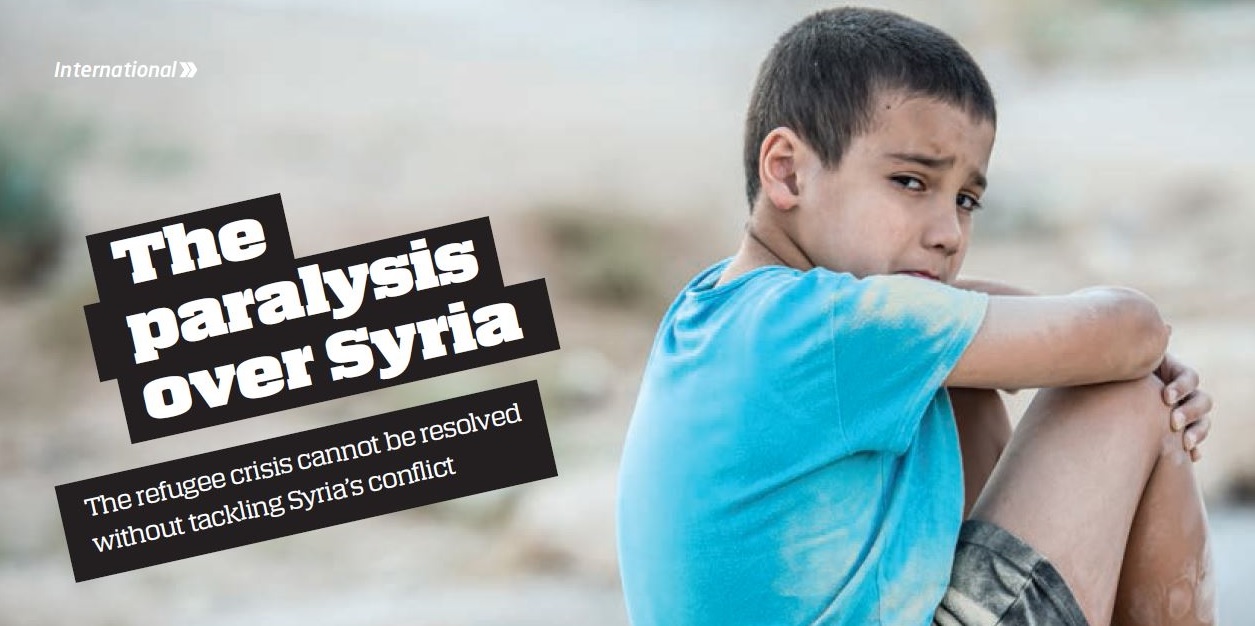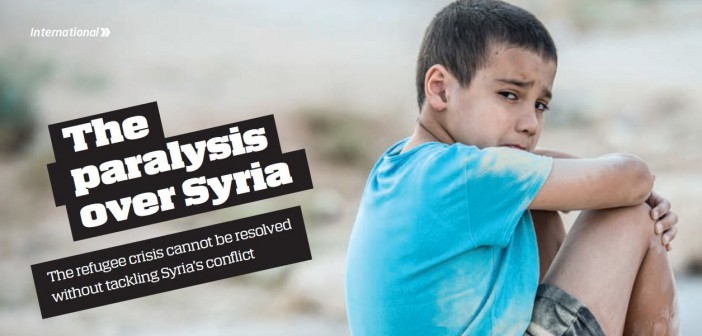
The refugee crisis cannot be resolved without tackling Syria’s conflict
There is turbulence in the Eurozone and its disquieting genesis lies in the protracted civil war in Syria, some 1,200 km away to the east.
As Europe’s demography and ethnicity are poised to be transformed by the relentless influx of those fleeing the conflict to seek refuge on the Continent, the international community needs to brazen out a resolution of the Syrian campaign as much as it will need to cope with the surging asylum-seekers.
With the deadly impasse having endured for the past four years and nine months, rivals United States and Russia are now seeking to outmanoeuvre each other in gaining an upper hand on the crisis. The US-led coalition’s perceived ineffectiveness against both the authoritarian Bashar al-Assad regime in Syria and the Islamic State (IS) jihadi militants who now control half of that country finally emboldened Russia to move in briskly on 30 September, in its first military operation beyond the boundaries of the former Soviet Union since the end of the Cold War.
Starting with aerial attacks against rebel forces ranged against Assad who is its staunch ally, Russia is now targeting IS encampments and already claims to have smashed the control and logistic network of the terrorist organisation. With the US’s 2,410 airstrikes against IS-held areas since 23 September 2014 seen to have had little impact, President Vladimir Putin is rallying other countries to join a Russia-led co-ordination centre that will share intelligence between his country’s armed forces and Syria, Iran and Iraq. While he seeks Assad’s ouster, President Barack Obama claims the US-led coalition comprises 60 countries, with 24 of them actively participating in the military operations.
The two superpowers will be queering the pitch as each will be loath to join the other’s coalition – to avoid submitting to the other’s command – and will also be hesitant to articulate their respective strategy in Syria. While the Americans see an end to the conflict through regime change in Syria, Moscow sees a solution in the annihilation of Assad’s opponents.
The conflict in Syria swirled in January 2011 as another Arab Spring uprising against the autocratic rule of Assad and escalated into a full-blown civil war between the protestors and the Presidential loyalists as well as between them and IS. Over 220,000 Syrians have been slain in the internecine skirmish that has internally displaced 7.4 million inhabitants and sparked the mass exodus of 4 million others.
As distraught migrants surge in primarily from war-torn Syria and occasionally from other conflict zones in the Ukraine, Iraq, Eritrea, Yemen, Afghanistan and sub-Saharan Africa, an alarmed European leadership is striving for a consensus on ad hoc measures that can at best contain this calamity.
Challenged by the worst refugee crisis since the last War, leaders of the 28-member European Union (EU) have pledged €1 billion ($1.1 billion) for international agencies assisting refugees at camps near their home countries. The EU has also approved a plan to relocate 120,000 migrants across Europe, on top of the resettlement of 40,000 refugees who have arrived in Greece and Italy… Click HERE to find out more about this article






